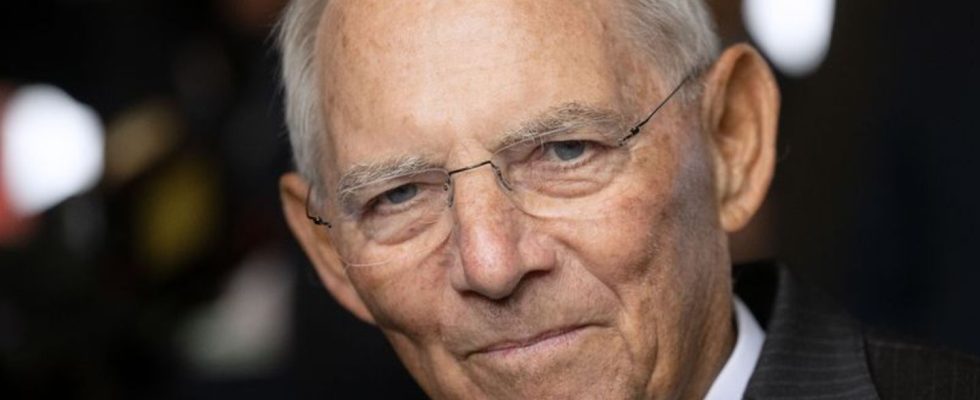Deceased CDU politician
Schäuble memoirs: Stoiber planned a coup against Merkel
“He wanted to persuade me to overthrow Merkel in order to become chancellor myself”: Wolfgang Schäuble about his political colleague Edmund Stoiber. photo
© Marijan Murat/dpa
The refugee crisis caused tensions within the Union. In his memoirs, which have now been published posthumously, Schäuble describes his thoughts on overthrowing the then Chancellor.
The deceased CDU politician In his memoirs, Wolfgang Schäuble recounted efforts by former CSU leader Edmund Stoiber to persuade him to overthrow Chancellor Angela Merkel during the refugee crisis.
In excerpts published by “Stern”, Schäuble describes that the situation in the Union became difficult in the fall of 2015. “The highlight was the CSU party conference, when the Bavarian Prime Minister and CSU chairman (Horst Seehofer) defied the Chancellor like a schoolgirl,” it says. “In the meantime, Edmund Stoiber also became active and encouraged Seehofer, his successor in the prime minister’s office, in his attacks against Merkel. And he wanted to persuade me to overthrow Merkel in order to become chancellor myself.”
Fundamental support for Merkel’s decision
He firmly rejected this, writes Schäuble. “Like Kohl decades before, I remained convinced that the overthrow of our own chancellor could only harm our party in the long term without really solving the problem. That was my understanding of loyalty, which perhaps seems a little antiquated by today’s standards.”
Stoiber was Prime Minister of Bavaria from 1993 to 2007 and chairman of the CSU from 1999 to 2007. During the refugee crisis, he repeatedly criticized Merkel’s course.
Stoiber: “I never commented on reports about it”
When asked by the German Press Agency in Munich, Stoiber said he did not want to comment on Schäuble’s account: he had only had as many personal and confidential conversations with few colleagues in his life, “as with my long-standing and closely associated colleague Wolfgang Schäuble.” “I have never commented on reports about this and of course that still applies to me today after his death.”
In the passages published by “Stern”, Schäuble, who died in December, reiterated his fundamental support for Merkel’s decision to keep the German borders open to refugees in autumn 2015, but also expressed criticism of her actions on the issue. “When the Chancellor made the decision on September 4, 2015, which in retrospect is central to this crisis, to keep the borders open in view of the catastrophic conditions at the Budapest train station, where thousands of refugees were stranded, I thought this was for humanitarian and European policy reasons right,” he writes. At the time, Schäuble was finance minister in Merkel’s cabinet.
“Merkel is resistant to advice in many respects”
He supported Merkel to the best of his ability and he also found her sentence “We can do it” to be correct. “These were strong statements. They simply should have been accompanied by a number of other measures and efforts to make it clear that this unique emergency measure was unrepeatable.” In contrast to the Chancellor, he believed it was right to “give the citizens pure wine and make it clear that working for the refugees also involves costs and sacrifices.” He was occasionally frustrated “that Merkel remained resistant to advice in some respects. In my opinion, she would have had completely different options to really lead politically and not just react.”
Schäuble’s book “Memories. My Life in Politics” will be published next week. The CDU politician died on Boxing Day at the age of 81. In his long political career, Schäuble was head of the Chancellery, Federal Minister of the Interior and Finance, chairman of the CDU and President of the Bundestag. Most recently, he was a simple member of the Bundestag, where he served for 51 years – longer than any other member in German parliamentary history. He was buried in his hometown of Offenburg.

